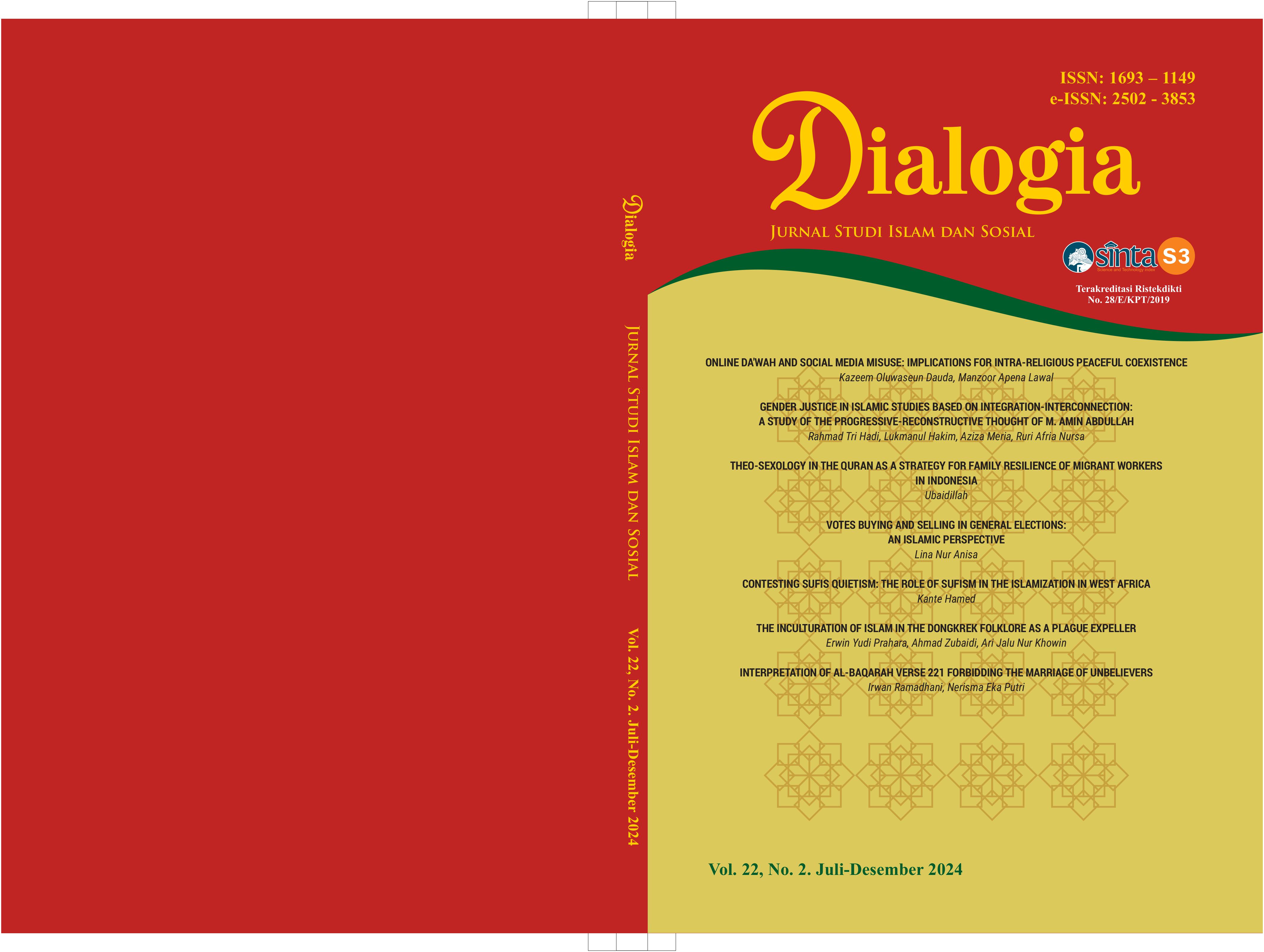Gender Justice in Islamic Studies Based on Integration-Interconnection: A Study of the Progressive-Reconstructive Thought of M. Amin Abdullah
DOI:
https://doi.org/10.21154/dialogia.v22i2.9650Abstract
This article focuses on one of the current contemporary philosophical discourses, namely the discourse regarding gender justice in Islamic studies, from M. Amin Abdullah's perspective in connection with the current development of Islamic studies. The method used in this research is a descriptive-analytical method with an integration and interconnection approach and deep gender discussions. Islamic Studies emphasizes the need for a meeting point between religion and feminism, which leads to position-taking, which should no longer be shown of power or conflict with each other but look for a common ground for negotiation (consensus). It tries to reveal M. Amin Abdullah's ideas and suggestions regarding studying and interpreting gender issues in Islamic studies. The primary data used in this research are the works of M. Amin Abdullah.Meanwhile, secondary data in this research are books, journal articles, and other websites that discuss Amin Abdullah's thoughts. The research results show that Amin Abdullah emphasizes the need to disseminate more egalitarian and just religious and scientific understanding to reconstruct traditional values that are no longer conducive to the process of social change, including gender bias, which often hinders the achievement of a just society. Here, is a critical analysis of the understanding of gender in contemporary Islamic studies from M. Amin Abdullah's perspective. In this way, this article will contribute to developing contemporary Islamic studies into a more inclusive, progressive, and gender-free Islamic scientific discourse.
Downloads
Downloads
Published
Issue
Section
License
Copyright (c) 2024 Rahmad Tri Hadi, Lukmanul Hakim, Aziza Meria, Ruri Afria Nursa

This work is licensed under a Creative Commons Attribution-NonCommercial-ShareAlike 4.0 International License.
Dialogia : Jurnal Studi Islam dan Sosial allow the author(s) to hold the copyright without restrictions and allow the author(s) to retain publishing rights without restrictions, also the owner of the commercial rights to the article is the author.










